Secret Agent (1936)
Directed by: Alfred Hitchcock
Written by: Campbell Dixon, Charles Bennett, Ian Hay, W. Somerset Maughan
Starring: John Gielgud, Madeleine Carroll, Peter Lorre, Robert Young
UK
AVAILABLE ON DVD
RUNNING TIME: 82 min
THE HITCHCOCK CAMEO: None
REVIEWED BY: Dr Lenera, Official HCF Critic
1916, during World War One. Novelist Edgar Brodie fakes his own death and is given false passports with the name Richard Ashenden, introduced to an assistant who goes by the nickname General, and told to proceed in disguise to a hotel in Switzerland and await further instructions. The instructions turn out to be to identify a German undercover agent who is about to leave the hotel for Istanbul, then to prevent him from reaching his destination by any means necessary. He then checks into the hotel and learns that a Mrs. Ashenden had arrived the day before….
Secret Agent, which is less known and seen than Hitchcock’s previous two British thrillers The Man Who Knew Too Much and The 39 Steps, doesn’t flow nearly as well as those two, but is an interesting attempt at a more morally complex, ‘interior’ film, where what’s going on in somebody’s head is more important than what’s going on outside of it. Hitchcock doesn’t entirely succeed, the light-hearted, set-piece-following-set-piece format and scant running time not really allowing the psychological aspects to breath enough. It’s also a rare Hitchcock film that doesn’t feature as his hero an ordinary man caught up in extraordinary circumstances, but instead a guy who appears to be a fully-fledged spy, albeit a spy who doesn’t seem to want to do his unsavoury job very much. The lack of a sympathetic hero to root for has been much criticised, including by Hitchcock himself, but it makes the film unique in his work up to now. It’s not a neglected classic, but I feel it deserves a little more attention than it has generally received and certainly has a few superbly crafted scenes even if the overall film is a bit spotty.
After The 39 Steps, it’s no surprise that studio head Michael Balcon wanted Hitchcock to carry on in the world of spies. The Secret Agent was a play by Campbell Dixon based on The Hairless Mexican, one of a collection of short stories by Somerset Maugham about a secret agent called Ashenden, inspired by Maugham’s own experiences during World War One. Dixon wrote a film treatment which Hitchcock [as usual, he had a huge hand in the screenplay even though he wasn’t credited] and Ivor Montagu expanded into a screenplay, adding elements from another short story The Traitor. Perhaps partly for censorship purposes, they also slightly altered the basic idea of an agent killing the wrong man and going on to kill the right man, to the first killing be by other hands even though he had a hand in it, and the second killing be accidental. Hitchcock wanted John Gielgud to star, but the already great stage actor was only convinced to be in the film when Hitchcock compared his character to Hamlet. He hated being in something where the director was clearly far more interested in the leading lady. Madeleine Carroll and Peter Lorre returned from the previous two films, but this time Lorre kept sneaking off to inject morphine. As usual most of the film was shot in the studio despite the Swiss setting. One scene between the two leads and a coachman was made up on the spot with no idea of where it was going to go. An insert of coloured film, designed to make it look like the film had caught fire, was originally in the train crash climax, but removed when audiences panicked. The film did well, though critics were cold.
This film begins with the hero faking his own death, then going on to meet his boss called ‘R’, and these aren’t the only elements in a story which has a distinct whiff of 007 about it, only of course it was years before Ian Fleming would pick up his pen. As with many of the Bond films, the main setting is exploited to the full. What do they have in [a very cliched view of] Switzerland? Mountains, lakes, chocolate and village dances, so the story uses these elements to the full. The main interest for quite a while are the main characters though, which are far more intriguing than had often been the case before. Brodie is a writer who becomes a secret agent and an assassin, only he clearly has second thoughts about what he has to do and dithers. Gielgud is not the obvious romantic lead but this makes him more interesting. His female partner and pretend wife Elsa Carrington is an adventuress who initially finds all this quite thrilling until the first kill. She also goes back and forth from Ashenden to the guy who is already her boyfriend Robert Marvin, a far more conventional male romantic leading character. Then there’s the man just called ‘the General’, a skirt chasing [and, it’s subtly hinted at, trouser chasing as well] chasing Mexican who enjoys killing and wears an earring long before it was deemed fashionable for men. Lorre looks totally doped up, but his off-the-wall performance is great fun and he has an especially funny scene where he’s upset at not being given a female aide and throws toilet paper around the room.
The story proceeds at a good pace and only falters slightly around the middle. The first kill is a superb example of editing and sound and I don’t know why it isn’t mentioned more in writings of Hitchcock’s work. The General is out on the mountains with the victim-to-be and about to push him to his death while Ashenden watches through a telescope very uncomfortably. At the same time Elsa is at the house of the target’s wife, trying to learn German to keep her occupied, and her initial flippant attitude changes when the man’s dog starts getting increasingly agitated, howling and and trying to get out, possibly knowing of his master’s peril. Cuts back to the mountains retain the sound of the dog trying to scratch down the door, and when Ashenden next looks through the telescope we just see one figure in the distance. The actual kill may happen off-screen, but the whole sequence is a brilliant masterclass in both suspense and moral ambiguity. It’s really uncomfortable, partly because we don’t know where our loyalties lie, and it’s easy to see how this was generally considered a mistake back in the 1930’s, but I like it a lot.
Ashenden and The General make a great pairing as they go all over the place trying to find the right man after realising they killed The Wrong Man. Other good scenes include one in a church where the organist who may tell them crucial information is found slumped over the organ causing a dissonant chord to be played, and the killer rings the bells when Ashenden and the General are up there. Then there’s a tense sequence in a chocolate factory where they are trying to find the target, the reveal of the villain quite a shock on a first viewing because the guy seems so nice and it’s so surprising. Finally there’s a very quickly-edited train crash, Hitchcock again showing a distinct fondness for scenes involving trains. It’s terribly convenient who survives and who doesn’t, and it was not a good idea to end up the film with a montage of war footage showing the triumph of British forces in the Eastern Front. As usual though, the bits of humour work for the story rather than against it. The first meeting between Ashenden and Elsa, who has Robert waiting for her while she changes, is out of a really good screwball comedy and really shows Carroll to be as good as, say, Carole Lombard or Katherine Hepburn at this sort of thing.
Hitchcock’s direction is occasionally more ‘show-offy’ than the last few films, like when the screen is filled with lots of buttons when a shirt button has failed to identify the enemy agent. Gielgud really seems awkward, but it seems to suit his character, even if Lorre unsurprisingly steals every scene. Louis Levy contributes a few decent pieces of music here and there, though considering most of the picture is unscored they kind of stick out. In the end Secret Agent has an awkwardness that is hard to deny, and is not entirely satisfying, but it remains both a decent piece of entertainment and a curious attempt to go down some different pathways which the time it was made in just prevented it from quite having the courage of its convictions. Saying that, its healthy cynicism about patriotism [“Do you love your country? Well I just died for it”] and secret services, plus its moral ambiguity, almost make it seem quite modern.

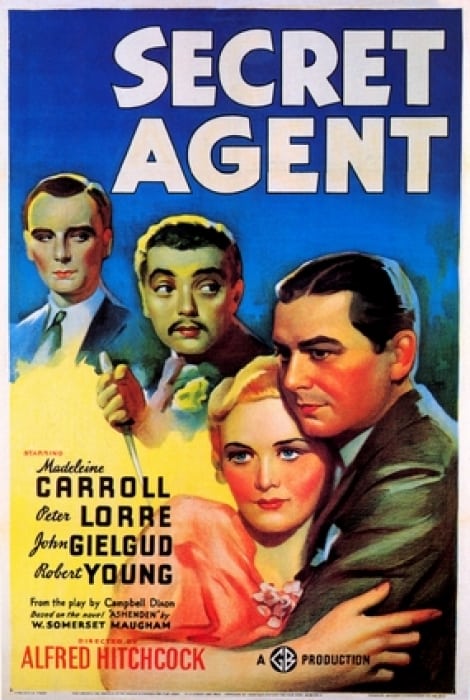
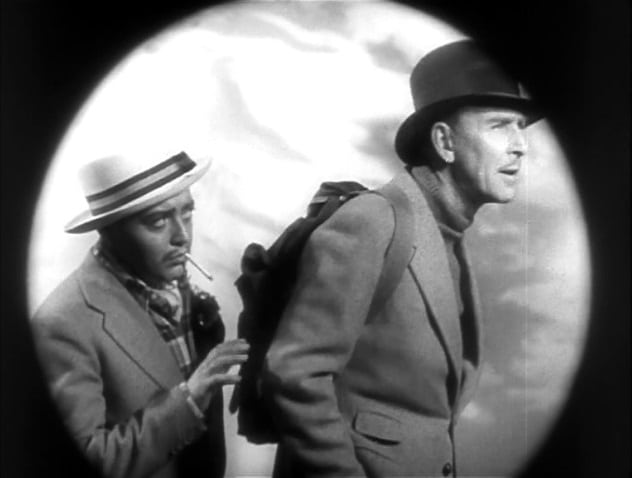
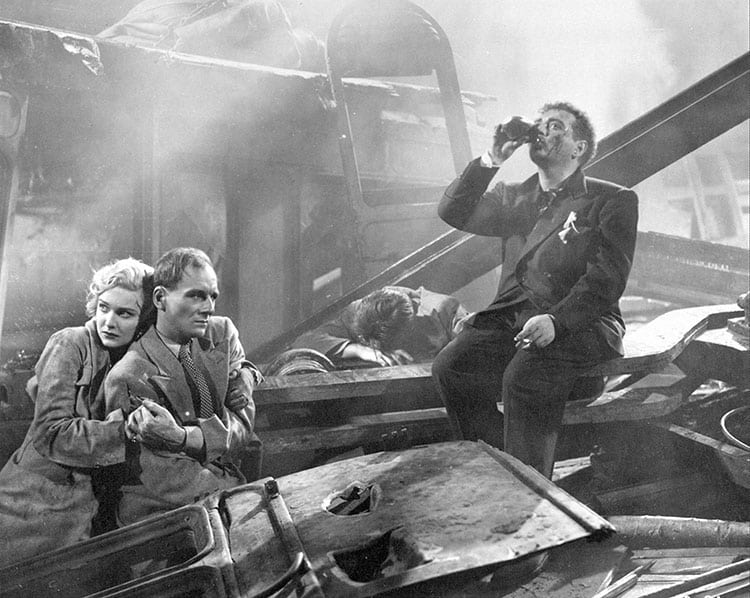



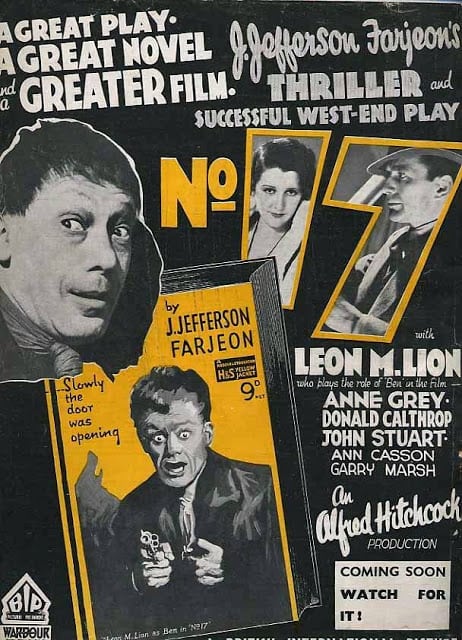
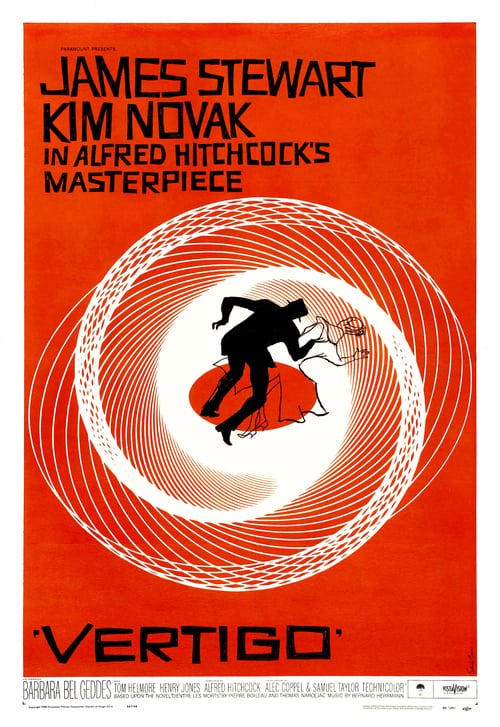
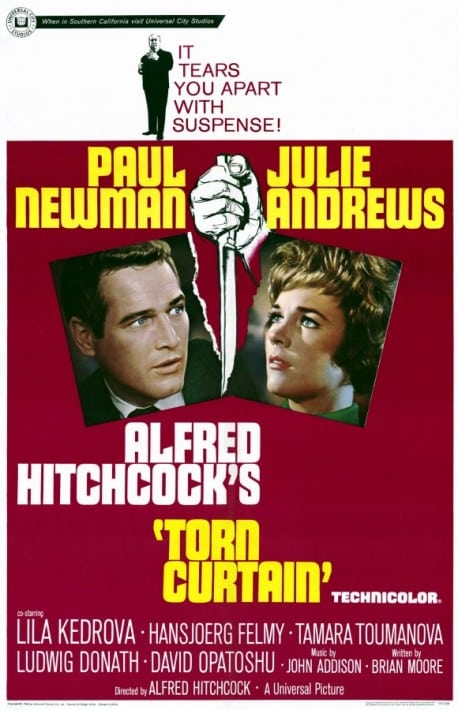
Be the first to comment